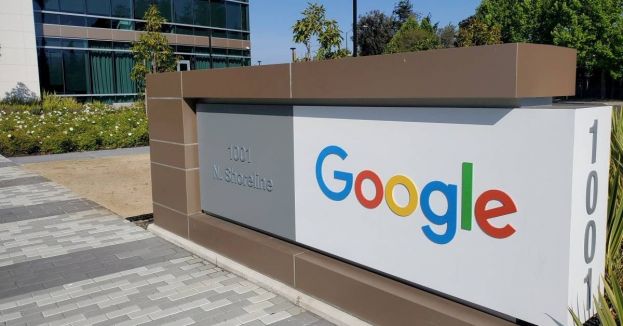Google is launching measures to stop climate change deniers from spreading misinformation or making money by blocking digital ads touting false climate change claims from emerging alongside content on its platforms.
The company said Thursday in a blog post that it was rolling out a new policy for YouTube video creators. advertisers and publishers.
The new rules “will prohibit ads for, and monetization of, content that contradicts well-established scientific consensus around the existence and causes of climate change,” the blog post said.
The rules will refer to any content calling climate change a trick or denying that greenhouse gas emissions and human activity have added to the earth's long-term warming.
MUST WATCH: GIANT EMPEROR TRUMP FIGURE AT ITALIAN FESTIVAL![]()
“In recent years, we’ve heard directly from a growing number of our advertising and publisher partners who have expressed concerns about ads that run alongside or promote inaccurate claims about climate change,” Google's ad team said.
UNIVERSITY OF WASHINGTON SET TO ESTABLISH "GAZA CAMP" AFTER BEING DENIED FOR LACK OF LEADERSHIP![]()
The company said advertisers don’t want their ads performing next to content doubting climate change, and publishers and creators don’t want them performing on their pages or videos.
Google said it would implement automated tools and human reviewers to support the system when it begins in November.
MUST WATCH: AUSTRALIAN BROADCASTER MOPS THE FLOOR WITH CLIMATE ACTIVISTS![]()
Earlier this week, Google distributed new features directed at helping users reduce their carbon footprints, including a search function that shows which flights have lower emissions.
Experts questioned whether the changes would be effective. “How will they determine what is misinformation (i.e. lies) or simply incomplete or misleading information?” Lisa Schipper, environmental social science research fellow at the University of Oxford’s Environmental Change Institute.
WAIT FOR GAS PRICES TO RISE! OVER 30 MISSILES LAUNCHED AT UKRAINE'S ENERGY INFRASTRUCTURE![]()
She mentioned an example image of clean energy by fossil fuel companies. “In some ways, these types of adverts that suggest a different kind of truth might be even more damaging because they look innocuous, while they simultaneously serve to greenwash the company,” Schipper said.
U.S. INTELLIGENCE AGENCIES' REPORT RELEASED: WHO WAS RESPONSIBLE FOR NAVALNY'S DEATH?![]()
Google will use both automated tools and human reviewers to enforce the policy when it takes effect in November for publishers and YouTube creators and in December for advertisers.
THE TRAGIC TALE OF IGNORED WARNINGS: HOW 2023 MAINE MASS SHOOTING COULD HAVE BEEN PREVENTED![]()
Advertisements will still be allowed on content that’s about other related topics like public debates on climate policy.
However, such debates can be just as polarized, warned Steve Smith, executive director of Oxford’s Net Zero climate neutrality research program and CO2RE research hub on greenhouse gas removal.
BIDEN'S BILLION-DOLLAR ANNOUNCEMENT OVERSHADOWS LOCAL BUSINESS STRUGGLES![]()
“Misinformation is at play in online discussions around low-carbon energy, travel and food, just as much as it is over climate science,” Smith said.
Google is one of the two dominant players in the global digital ad industry, earning $147 billion in ad revenue last year. Facebook, the other big player, prevents ads used to spread misinformation though it doesn’t list distinct subjects including climate change denial.








 Discover alternative ideas that will make you think
Discover alternative ideas that will make you think Engage in mind bending debate
Engage in mind bending debate Earn points, rise in rank, have fun
Earn points, rise in rank, have fun


